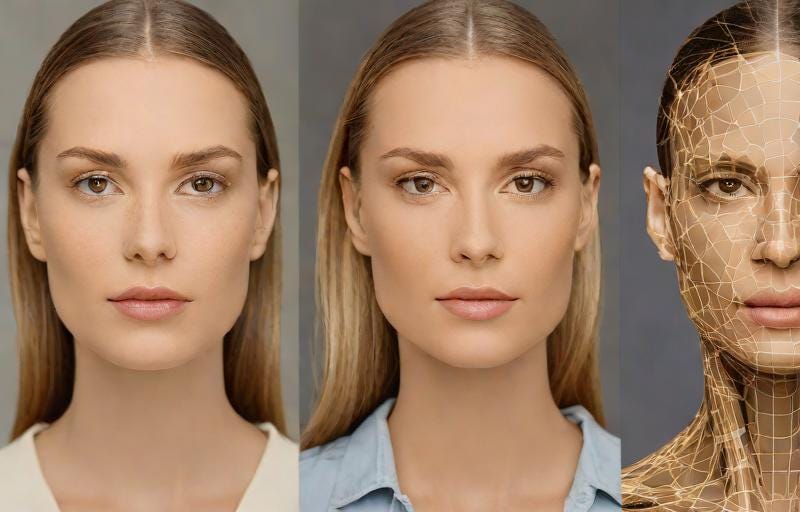In Saturday's New York Times, an article by Nicholas Kristof titled The Online Degradation of Women and Girls That We Meet With a Shrug can be read in its entirety by clicking here. His op-ed discusses how artificial intelligence deepfakes are becoming a major problem. A recent study by Home Security Heros found that 98% of deepfake videos online were pornographic, and 99% of them targeted women.
The article discusses an incident that happened just three towns over from where I live. I also recently used this story as a cautionary tale when discussing Deepfakes with my students. The story resonated deeply with my students, especially since it occurred so close to where we live.
Francesca Mani a 14-year-old high school sophomore in New Jersey was in class in October when the loudspeaker summoned her to the school office. According to the assistant principal and counselor, someone had used a “nudify” program to create a fake naked image of her using a clothed picture of her. The boys had also created naked images of several other sophomore girls.
Most people would think that such an action would be considered a HIB and could be dealt with through the legal system. The problem is that the laws have not caught up with the technology so the students had no legal recourse and the school could not do much about it.
Francesca courageously decided to take up the fight and created a great website called aiheeelp.com which offers information for AI Deepfakes and also information for victims of deepfakes. I highly recommend sharing it with students. But she is also leading the charge to get laws changed both in NJ and throughout the nation.
What we can do:
Send this article to your administration and board members and ask them to include language about deepfakes in any AI policy and/or HIB policy.
Talk to students about the problems with deepfakes, especially about this example. Provide them with a link to the aiheeelp.com website.
Contact your representative and ask them to support the Preventing Deepfakes of Intimate Images Act.
By educating our students and advocating for legislation, we can help protect people from the dangers of deepfakes.
The incident involving Francesca Mani highlights the urgent need for legislation and policies that address the growing threat of deepfakes. By raising awareness among students, sharing resources like aiheeelp.com, and advocating for the Preventing Deepfakes of Intimate Images Act, we can take important steps toward protecting individuals from the harmful impact of deepfake technology. We must prioritize the safety and well-being of our students in the face of this emerging challenge.
PODCAST NEWS:
I decided to do a podcast that reads out loud my articles. Since I know people can’t always take the time to read them. It also gives me a chance to add a little more commentary to the articles I write about. You can listen to this episode here. You can also find it on your favorite podcast listening platforms.




